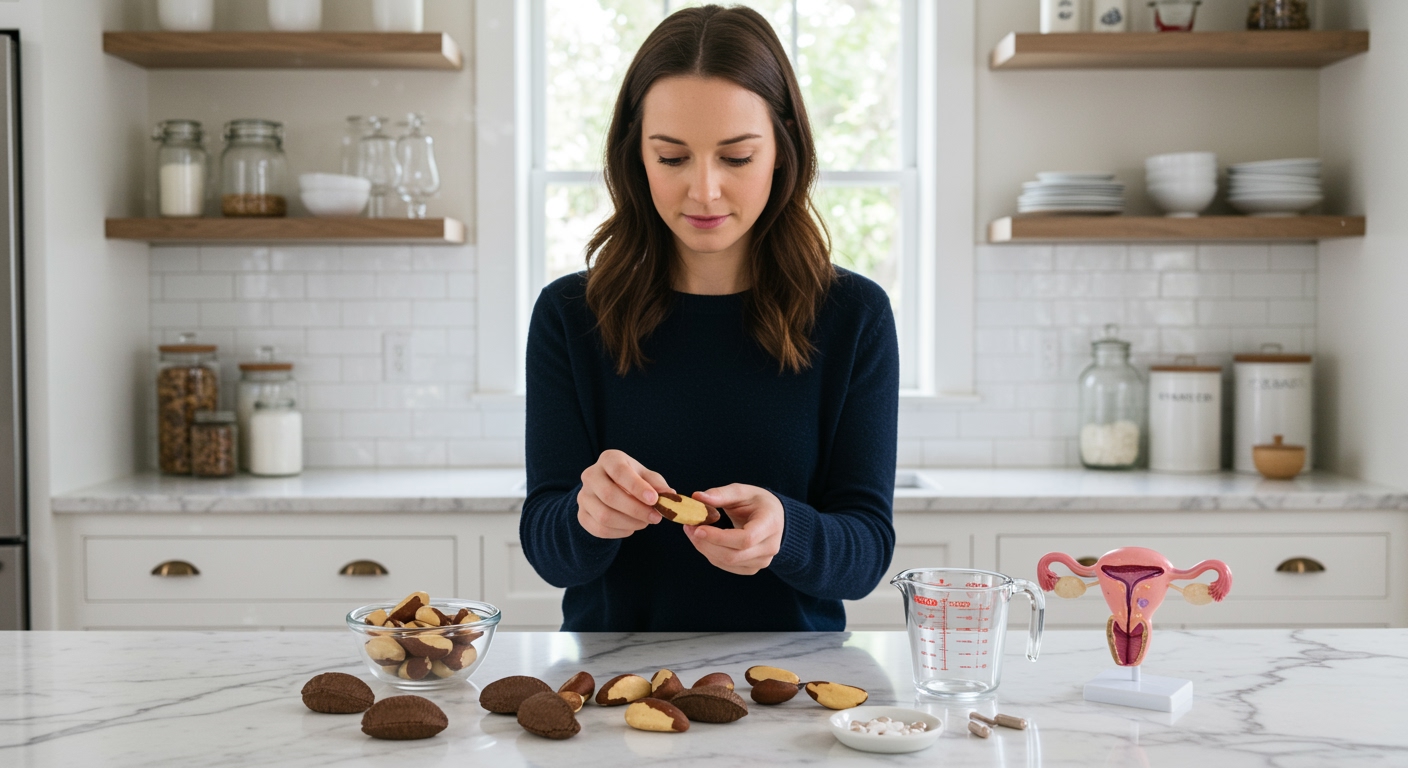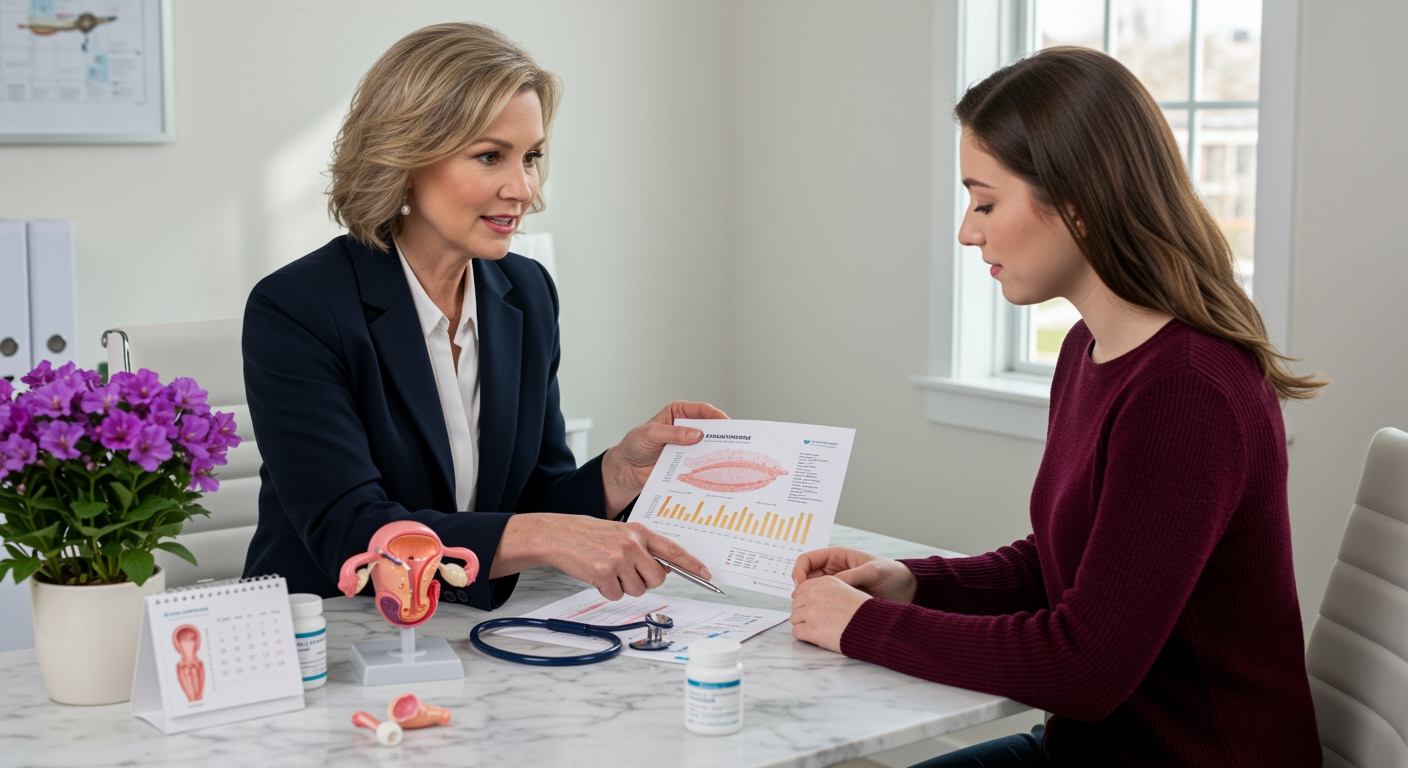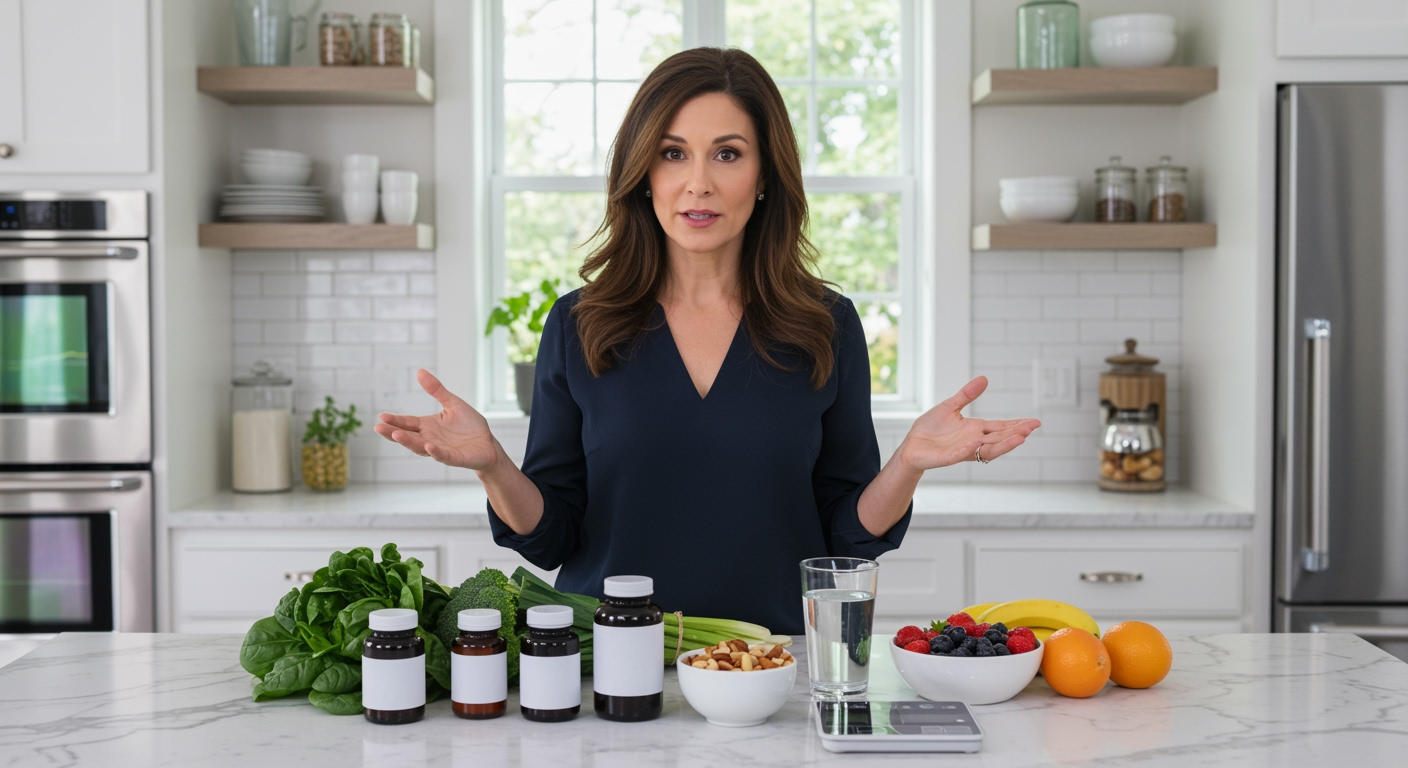✪ Key Takeaway: Brazil nuts provide exceptional selenium levels that may help reduce PCOS inflammation and improve insulin sensitivity.
Introduction
You crack open a Brazil nut and hold in your hand one of nature’s most concentrated sources of selenium.
Women with PCOS often struggle with inflammation, insulin resistance, and hormonal imbalances that seem impossible to control through diet alone.
Hi, I’m Abdur, your nutrition coach and today I’m going to explain how Brazil nuts might be the selenium powerhouse your body needs to fight PCOS symptoms naturally.
What Makes Brazil Nuts Special For PCOS?
Brazil nuts contain more selenium per serving than any other food on earth.
Just one Brazil nut provides approximately 96 micrograms of selenium, which exceeds the daily recommended intake of 55 micrograms for adults.
This selenium acts as a powerful antioxidant that helps reduce chronic inflammation commonly seen in PCOS patients.
Research shows that women with PCOS often have lower selenium levels compared to healthy women, creating a nutritional gap that affects hormone production.
Selenium supports the production of glutathione peroxidase, an enzyme that protects cells from oxidative stress and helps regulate insulin sensitivity.
✪ Fact: Brazil nuts get their high selenium content from the selenium-rich soil of the Amazon rainforest.
How Does Selenium Help With PCOS Symptoms?
Selenium works as a cofactor for several enzymes that regulate thyroid function and hormone metabolism.
Many women with PCOS also have thyroid dysfunction, and selenium deficiency can worsen these problems by reducing thyroid hormone conversion.
The mineral helps reduce inflammatory markers like C-reactive protein and interleukin-6, which are often elevated in PCOS patients.
Selenium also supports insulin sensitivity by protecting pancreatic beta cells from oxidative damage and improving glucose metabolism.
Studies suggest that adequate selenium intake may help reduce androgen levels and improve menstrual regularity in women with PCOS.
The antioxidant properties of selenium help protect egg quality and may improve fertility outcomes for women trying to conceive.
✪ Pro Tip: Eat Brazil nuts with vitamin E-rich foods like sunflower seeds to enhance selenium absorption.
How Many Brazil Nuts Should You Eat For PCOS?
The optimal intake for PCOS management appears to be 1-2 Brazil nuts per day, providing 96-192 micrograms of selenium.
Eating more than 4 Brazil nuts daily can lead to selenium toxicity, causing symptoms like hair loss, nail brittleness, and digestive issues.
The selenium content in Brazil nuts varies significantly depending on the soil conditions where they were grown, so consistency matters more than exact amounts.
Start with one nut daily for the first week to assess your body’s response, then increase to two if needed.
Choose raw, unsalted Brazil nuts over processed versions to avoid added sodium and preservatives that can worsen PCOS inflammation.
Store Brazil nuts in the refrigerator to prevent rancidity, as their high fat content makes them prone to spoilage at room temperature.
✪ Note: Brazil nuts from different regions can contain 10-100 times more selenium than others.
What Are The Potential Risks And Side Effects?
Selenium toxicity, called selenosis, can occur when consuming more than 400 micrograms daily over extended periods.
Early signs of selenium excess include metallic taste in the mouth, garlic-like breath odor, and brittle fingernails.
Brazil nuts are also high in calories and fat, with each nut containing about 33 calories and 3.3 grams of fat.
Some people may experience allergic reactions to Brazil nuts, especially those with tree nut allergies.
The high selenium content can interfere with certain medications, particularly those for thyroid conditions, so consult your healthcare provider first.
Pregnant women should limit Brazil nut consumption to avoid exceeding safe selenium levels during fetal development.
✪ Pro Tip: Take breaks from Brazil nuts every few weeks to prevent selenium accumulation in your body.
The Bottom Line
Brazil nuts offer a natural, convenient way to boost selenium levels and potentially improve PCOS symptoms through reduced inflammation and better insulin sensitivity.
Small consistent actions create lasting health transformations, and sometimes the most powerful solutions come in the smallest packages.
I would love to hear about your experience with Brazil nuts or any questions you have about using selenium for PCOS management in the comments below.
References
At NutritionCrown, we use quality and credible sources to ensure our content is accurate and trustworthy. Below are the sources referenced in writing this article:
- BBC Good Food: Health benefits of Brazil nuts
- MyOvaCare: Selenium and its benefits for PCOS
- PubMed: Selenium supplementation in PCOS patients
- PMC: Selenium status and PCOS
- Frontiers in Endocrinology: Selenium and reproductive health





